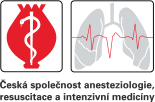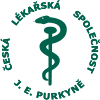Anest. intenziv. Med. 2022;33(1):7-13 | DOI: 10.36290/aim.2022.006
Clinical practise of administration of systemic corticosteroids among critically ill patients with COVID-19 in the Czech Republic: survey (ASAP‑C)Original Article
- 1 Klinika anesteziologie, resuscitace a intenzivní medicíny, Fakultní nemocnice Brno a Lékařská fakulta Masarykovy univerzity Brno
- 2 Ústav simulační medicíny, Lékařská fakulta Masarykovy univerzity Brno
- 3 Klinika dětské anesteziologie a resuscitace, Fakultní nemocnice Brno a Lékařská fakulta Masarykovy univerzity Brno
- 4 Klinika anesteziologie a resuscitace Fakultní nemocnice Královské Vinohrady a 3. Lékařská fakulta Karlova Univerzita, Praha
- 5 Klinika anesteziologie a resuscitace, Fakultní nemocnice Ostrava a Lékařská fakulta Ostravské Univerzity
- 6 Klinika nemocí plicních a tuberkulózy, Fakultní nemocnice Brno a Lékařská fakulta Masarykovy univerzity Brno
- 7 Farmakologický ústav, Lékařská fakulta Masarykovy univerzity Brno
- 8 Lékařská fakulta Masarykovy univerzity Brno
Study objective: Administration of systemic corticosteroids in patients with severe COVID-19 (Coronavirus Disease 2019) has been recommended by World Health Organization (WHO) according to the RECOVERY trial results. However, there is still ongoing debate regarding the evidence supporting the dose, timing, route of administration and type of corticosteroid. This survey aimed to describe the current clinical practice of administration of systemic corticosteroids for patients with COVID-19 within Intensive Care Units (ICU) in Czech Republic.
Study design: cross-sectional survey
Material and methods: Electronic survey containing 15 questions was sent to the members of Czech Society of Anaesthesiology, Resuscitation and Intensive Care, Czech Society of Intensive care and Czech Pneumological and Phthisiological Society members. The results were analysed by descriptive statistic methods.
Results: The survey fulfilled 233 respondents and 231 answers were eligible for analysis. The most prevalent group was attending physician with completed training in anaesthesiology and intensive care medicine (AIM) (32 %, n = 74). The most prevalent indication for initiation of corticosteroid treatment was oxygen therapy (face mask or nasal cannula) (59,3 %, n = 137) and high-flow nasal oxygen therapy (HFNC) (21,6 %, n = 50). The most preferred corticosteroid was dexamethasone (75,8 %, n = 175) at dose of 8 mg intravenously (i. v.) (48,6 %, n = 85), or dose of 6 mg i. v. (32,0 %, n = 56) followed by methylprednisolone (25,5 %, n= 59) at dose of 80 mg i. v. (35,6 %, n = 21), and 40 mg i. v. (13,6 %, n = 8), respectively. The preferred duration of therapy was 10 days (dexamethasone 60,6 %, n = 106, methylprednisolone 20,3 %, n = 12).
Conclusion: Administration of corticosteroid was dominantly initiated in patients with severe COVID-19 receiving supplemental oxygen. The corticosteroid of first choice was intravenous dexamethasone at dose of 8 mg and 6 mg for 10 days, respectively.
Keywords: COVID-19, ARDS, corticosteroids, critical care, survey.
Received: December 23, 2021; Revised: February 9, 2022; Accepted: February 21, 2022; Published: February 25, 2022 Show citation
| ACS | AIP | APA | ASA | Harvard | Chicago | Chicago Notes | IEEE | ISO690 | MLA | NLM | Turabian | Vancouver |
References
- Meduri GU, Annane D, Confalonieri M, Chrousos GP, Rochwerg B, Busby A, et al. Pharmacological principles guiding prolonged glucocorticoid treatment in ARDS. Intensive Care Med. 2020 Dec;46(12):2284-2296. doi: 10.1007/s00134-020-06289-8. Epub 2020 Nov 4. PMID: 33150472; PMCID: PMC7641258.
 Go to original source...
Go to original source...  Go to PubMed...
Go to PubMed... - Horby P, Lim WS, Emberson JR, Mafham M, Bell JL, Linsell Let al. Dexamethasone in Hospitalized Patients with Covid-19. N Engl J Med. 2021 Feb 25;384(8):693-704. doi: 10.1056/NEJMoa2021436. Epub 2020 Jul 17. PMID: 32678530; PMCID: PMC7383595.
 Go to original source...
Go to original source...  Go to PubMed...
Go to PubMed... - World Health Organization. (2020). Corticosteroids for COVID-19: living guidance, 2 September 20WorldHealth Organization. https://apps.who.int/iris/handle/10665/334125. License: CC BY‑NC‑SA 3.0 IGO
- Sterne JAC, Murthy S, Diaz JV, Slutsky AS, Villar J, Angus DC, et al. Association Between Administration of Systemic Corticosteroids and Mortality Among Critically Ill Patients With COVID-19: A Meta‑analysis. JAMA. 2020 Oct 6;324(13):1330-1341. doi: 10.1001/jama.2020.17023. PMID: 32876694; PMCID: PMC7489434.
 Go to original source...
Go to original source...  Go to PubMed...
Go to PubMed... - van Paassen J, Vos JS, Hoekstra EM, Neumann KMI, Boot PC, Arbous SM. Corticosteroid use in COVID-19 patients: a systematic review and meta‑analysis on clinical outcomes. Crit Care. 2020 Dec 14;24(1):696. doi: 10.1186/s13054-020-03400-9. PMID: 33317589; PMCID: PMC7735177.
 Go to original source...
Go to original source...  Go to PubMed...
Go to PubMed... - Villar J, Ferrando C, Martínez D, Ambrós A, Muñoz T, Soler JA, et al.; dexamethasone in ARDS network. Dexamethasone treatment for the acute respiratory distress syndrome: a multicentre, randomised controlled trial. Lancet Respir Med. 2020 Mar;8(3):267-276. doi: 10.1016/S2213-2600(19)30417-5. Epub 2020 Feb 7. PMID: 32043986.
 Go to original source...
Go to original source...  Go to PubMed...
Go to PubMed... - Habas K, Nganwuchu C, Shahzad F, Gopalan R, Haque M, Rahman S, et al. Resolution of coronavirus disease 2019 (COVID-19). Expert Rev Anti Infect Ther. 2020 Dec;18(12):1201-1211. doi: 10.1080/14787210.2020.1797487. Epub 2020 Aug 4. PMID: 32749914.
 Go to original source...
Go to original source...  Go to PubMed...
Go to PubMed... - Torres Acosta MA, Singer BD. Pathogenesis of COVID-19-induced ARDS: implications for an ageing population. Eur Respir J. 2020 Sep 24;56(3):2002049. doi: 10.1183/13993003.02049-2020. PMID: 32747391; PMCID: PMC7397945.
 Go to original source...
Go to original source...  Go to PubMed...
Go to PubMed... - Griffiths MJD, McAuley DF, Perkins GD, Barrett N, Blackwood B, Boyle A, et al. Guidelines on the management of acute respiratory distress syndrome. BMJ Open Respir Res. 2019 May 24;6(1):e000420. doi: 10.1136/bmjresp-2019-000420. PMID: 31258917; PMCID: PMC6561387.
 Go to original source...
Go to original source...  Go to PubMed...
Go to PubMed... - Gattinoni L, Carlesso E, Taccone P, Polli F, Guérin C, Mancebo J. Prone positioning improves survival in severe ARDS: a pathophysiologic review and individual patient meta‑analysis. Minerva Anestesiol. 2010 Jun;76(6):448-54. PMID: 20473258.
 Go to PubMed...
Go to PubMed... - Sud S, Friedrich JO, Adhikari NK, Taccone P, Mancebo J, Polli F, et al. Effect of prone positioning during mechanical ventilation on mortality among patients with acute respiratory distress syndrome: a systematic review and meta‑analysis. CMAJ. 2014 Jul 8;186(10):E381-90. doi: 10.1503/cmaj.140081. Epub 2014 May 26. PMID: 24863923; PMCID: PMC4081236.
 Go to original source...
Go to original source...  Go to PubMed...
Go to PubMed... - Tillmann BW, Klingel ML, Iansavichene AE, Ball IM, Nagpal AD. Extracorporeal membrane oxygenation (ECMO) as a treatment strategy for severe acute respiratory distress syndrome (ARDS) in the low tidal volume era: A systematic review. J Crit Care. 2017 Oct;41:64-71. doi: 10.1016/j.jcrc.2017. 04. 041. Epub 2017 Apr 27. PMID: 28499130.
 Go to original source...
Go to original source...  Go to PubMed...
Go to PubMed... - Alhazzani W, Møller MH, Arabi YM, Loeb M, Gong MN, Fan E, et al. Surviving Sepsis Campaign: guidelines on the management of critically ill adults with Coronavirus Disease 2019 (COVID-19). Intensive Care Med. 2020 May;46(5):854-887. doi: 10.1007/s00134-020-06022-5. Epub 2020 Mar 28. PMID: 32222812; PMCID: PMC7101866.
 Go to original source...
Go to original source...  Go to PubMed...
Go to PubMed... - Alhazzani W, Evans L, Alshamsi F, Møller MH, Ostermann M, Prescott HC, et al. Surviving Sepsis Campaign Guidelines on the Management of Adults With Coronavirus Disease 2019 (COVID-19) in the ICU: First Update. Crit Care Med. 2021 Mar 1;49(3):e219-e234. doi: 10.1097/CCM.0000000000004899. PMID: 33555780.
 Go to original source...
Go to original source...  Go to PubMed...
Go to PubMed... - Meduri GU, Golden E, Freire AX, Taylor E, Zaman M, Carson SJ, et al. Methylprednisolone infusion in early severe ARDS: results of a randomized controlled trial. Chest. 2007 Apr;131(4):954-963. doi: 10.1378/chest.06-2100. PMID: 17426195.
 Go to original source...
Go to original source...  Go to PubMed...
Go to PubMed... - Silverman E. Hospitals see shortages of a cheap steroid that one study says helps Covid-19 patients. STAT [online]. 25 Jun 20 [cit. 5 Dec 21]. Dostupné z: https://www.statnews.com/pharmalot/2020/06/25/covid19-coronavirus‑dexamethasone‑shortages/.
- Maláska J, Stašek J, Duška F, Balík M, Máca J, Hruda J, et al.; REMED Study Group. Effect of dexamethasone in patients with ARDS and COVID-19 - prospective, multi‑centre, open‑label, parallel‑group, randomised controlled trial (REMED trial): A structured summary of a study protocol for a randomised controlled trial. Trials. 2021 Mar 1;22(1):172. doi: 10.1186/s13063-021-05116-9. PMID: 33648568; PMCID: PMC7917377.
 Go to original source...
Go to original source...  Go to PubMed...
Go to PubMed... - Munch MW, Myatra SN, Vijayaraghavan BKT, Saseedharan S, Benfield T, Wahlin RR, et al. Effect of 12 mg vs 6 mg of Dexamethasone on the Number of Days Alive Without Life Support in Adults With COVID-19 and Severe Hypoxemia: The COVID STEROID 2 Randomized Trial. JAMA. 2021 Nov 9;326(18):1807-1817. doi: 10.1001/jama.2021.18295. PMID: 34673895; PMCID: PMC8532039.
 Go to original source...
Go to original source...  Go to PubMed...
Go to PubMed... - Granholm A, Munch MW, Myatra SN, Vijayaraghavan BKT, Cronhjort M, Wahlin RR, et al. Dexamethasone 12 mg versus 6 mg for patients with COVID-19 and severe hypoxaemia: a pre‑planned, secondary Bayesian analysis of the COVID STEROID 2 trial. Intensive Care Med. 2021 Nov 10:1-11. doi: 10.1007/s00134-021-06573-1. Epub ahead of print. PMID: 34757439; PMCID: PMC8579417.
 Go to original source...
Go to original source...  Go to PubMed...
Go to PubMed... - Granholm A. Higher vs. standard doses of dexamethasone in patients with COVID‑19 and hypoxia: a prospective meta‑analysis. OSF Registries. 31 May 2021. https://doi.org/10.17605/OSF.IO/FR5SV.
 Go to original source...
Go to original source... - Webb SA, Higgins AM, McArthur CJ. Glucocorticoid Dose in COVID-19: Lessons for Clinical Trials During a Pandemic. JAMA. 2021 Nov 9;326(18):1801-1802. doi: 10.1001/jama.2021.16438. PMID: 34673891.
 Go to original source...
Go to original source...  Go to PubMed...
Go to PubMed... - Smilowitz NR, Kunichoff D, Garshick M, Shah B, Pillinger M, Hochman JS, etl al. C‑reactive protein and clinical outcomes in patients with COVID-19. Eur Heart J. 2021 Jun 14;42(23):2270-2279. doi: 10.1093/eurheartj/ehaa1103. PMID: 33448289; PMCID: PMC7928982.
 Go to original source...
Go to original source...  Go to PubMed...
Go to PubMed... - Butler E, Møller MH, Cook O, Granholm A, Penketh J, Rygård SL, et al. The effect of systemic corticosteroids on the incidence of gastrointestinal bleeding in critically ill adults: a systematic review with meta‑analysis. Intensive Care Med. 2019 Nov;45(11):1540-1549. doi: 10.1007/s00134-019-05754-3. Epub 2019 Sep 9. PMID: 31501997.
 Go to original source...
Go to original source...  Go to PubMed...
Go to PubMed...





